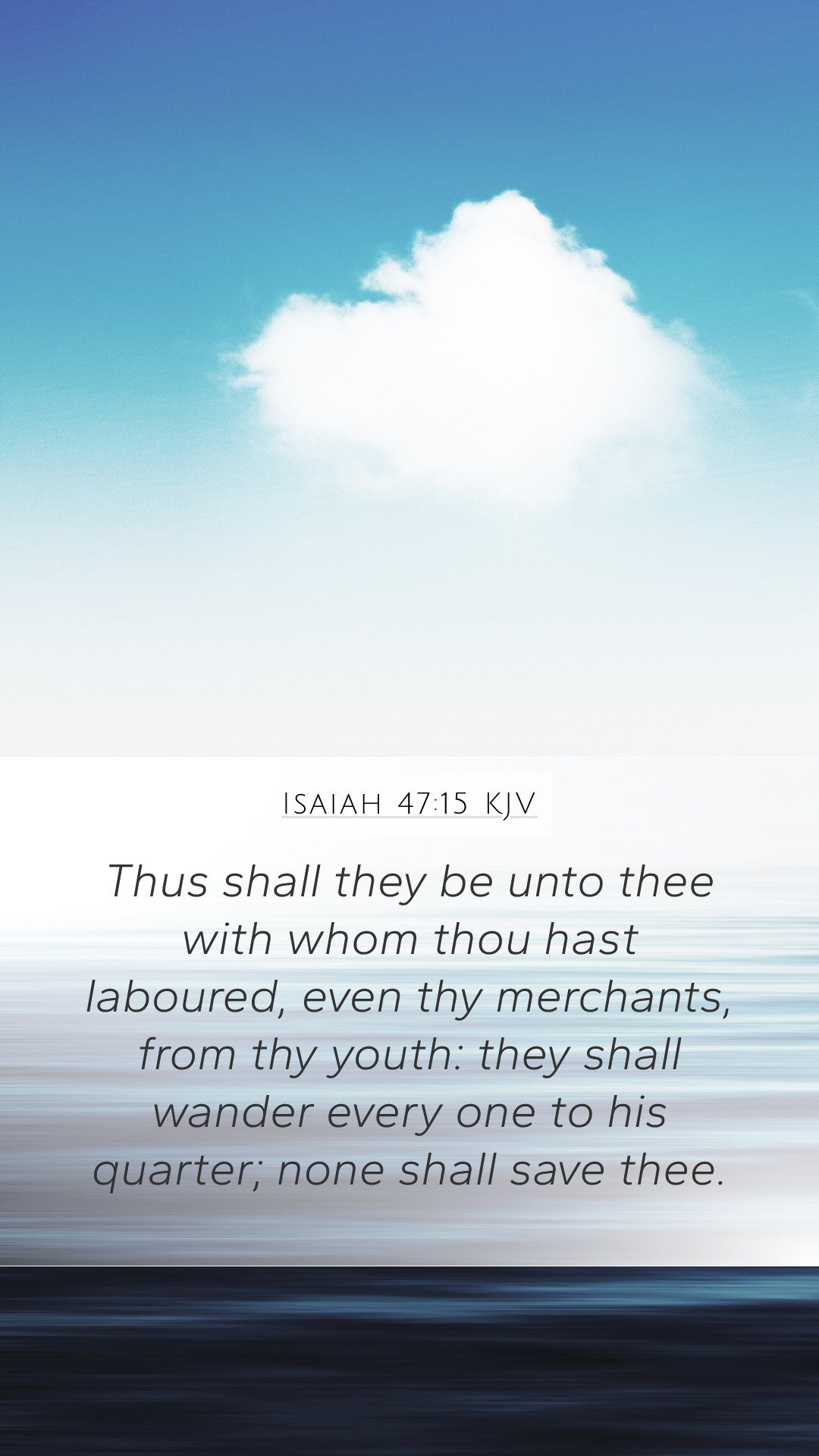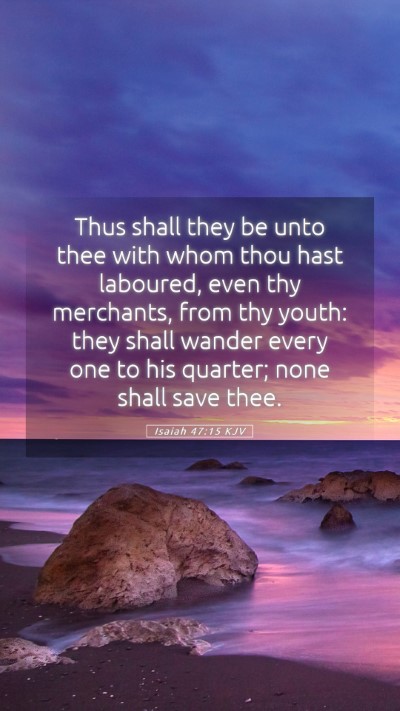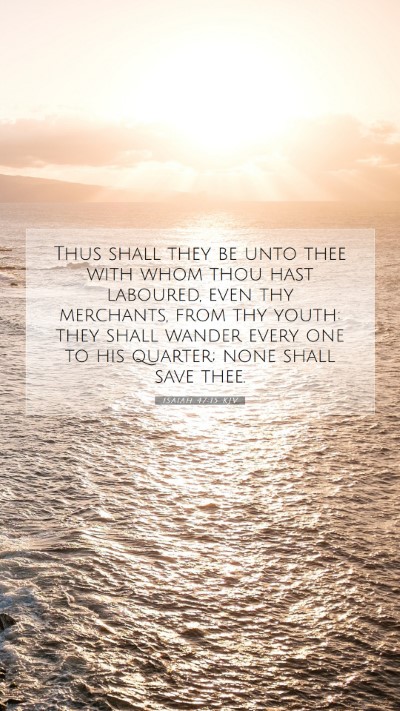Understanding Isaiah 47:15
Isaiah 47:15 reads, "Thus shall they be unto thee with whom thou hast labored, even thy merchants, from thy youth: they shall wander every one to his quarter; none shall save thee." This verse serves as a sharp reminder of the failure of reliance on human power and the ultimate isolation that comes from such dependency. Below, we provide a combined interpretation from several prominent public domain commentaries.
Bible Verse Meanings
- Matthew Henry's Commentary:
Matthew Henry describes this verse as a reflection on the futility of self-reliance and the inevitable downfall that results from trusting in material wealth and the support of others, who ultimately cannot deliver in times of crisis. He emphasizes that the merchants, who have been a lifeline, will themselves be lost and unable to assist in times of trouble.
- Albert Barnes' Notes:
Albert Barnes elaborates that in the context of Babylon’s impending judgment, the merchants are a symbol of the city's reliance on economic power for security. He suggests that the wandering of the merchants represents the collapse of confidence and the disarray that will ensue as a result of Divine judgment. The phrase 'none shall save thee' indicates complete desolation, highlighting the inability of earthly allies to provide salvation.
- Adam Clarke's Commentary:
Adam Clarke notes that this verse speaks to the futility of trusting in human relationships or commerce, as they will ultimately lead to disappointment. He points out that the reference to 'from thy youth' signifies a long-standing relationship with these merchants, intensifying the sense of betrayal as they cannot reverse the fate that awaits. Clarke warns against over-reliance on cultural or commercial ties in times of divine retribution.
Biblical Exegesis
The verse encapsulates themes of vulnerability and divine justice. The isolation and wandering of the merchants reflect a broader concept in the scriptures where human institutions fail to uphold their promises before God. Theologically, it drives home the point that ultimate reliance must lie with God, not with men or material wealth.
scripture Analysis and Context
In the context of Isaiah 47, the chapter speaks to the impending fall of Babylon—a powerful nation that fostered a false sense of security based on its riches and alliances. Understanding the historical context of this prophecy offers deeper Bible study insights into the nature of divine interventions in human affairs.
Application of Isaiah 47:15 to Daily Life
In modern applications, this verse serves as a powerful reminder about placing faith in God over the transient comforts and assurances of our surroundings. Believers are encouraged to reflect on their dependencies and consider whether they are relying on God or on their resources. This introspection can lead to significant spiritual growth.
Related Bible Cross References
- Jeremiah 10:14 - "Every man is brutish in his knowledge: every founder is confounded by the graven image: for his molten image is falsehood, and there is no breath in them."
- Psalm 118:8 - "It is better to trust in the LORD than to put confidence in man."
- Proverbs 11:28 - "He that trusteth in his riches shall fall: but the righteous shall flourish as a branch."
Conclusion
Isaiah 47:15 serves as a profound commentary on the interaction between human effort and divine sovereignty. It warns readers to seek fortitude in their faith and understanding of scripture rather than in the unreliable promises of the world. Through careful meditation and study, believers can better grasp the meaning of Bible verses and apply these teachings in their lives.


